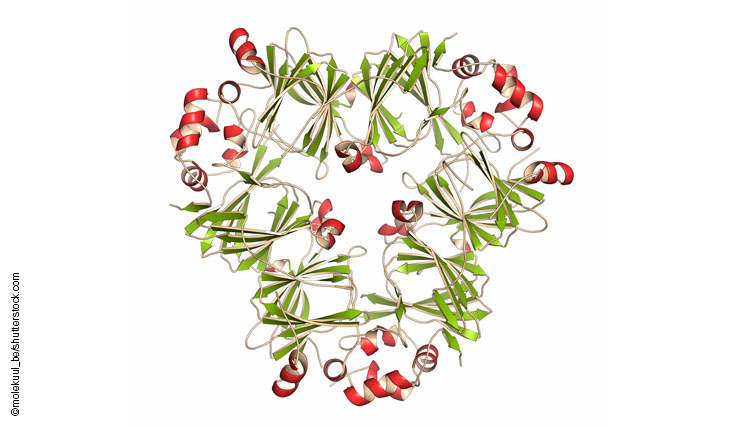In the current issue of the medical journal Trillium Diagnostik (14(3): 172-173), Prof Dr Rudolf Gruber and Dr Gabriele Egert, experts for laboratory diagnostics, clearly explain the advantages of defined recombinant allergen components which are applied in modern molecular allergy diagnostics.
While allergens which are extracted and purified from natural allergen sources always constitute a mixture of main and minor allergens as well as commonly non-allergic accessory substances, biotechnologically produced (recombinant) proteins are defined allergens and free of non-allergic parts. The authors illustrate that the recombinant allergens correspond to their natural counterpart regarding their molecular features and IgE binding sites, but are superior in standardisation for usage in diagnostics and therapy. Therefore, test systems based on recombinant allergens are more sensitive and particularly more specific, so that several allergens can be efficiently combined in a multiparametric assay.
The authors mention EUROIMMUN as one of the leading manufacturers of component-based allergy diagnostics, who offers indication-specific multiparametric profiles for inhalation and insect venom as well as atopic and pediatric allergies.
Another article on molecular allergology as the future of allergy diagnostics has been recently published in the medical magazine MEDLAB.


I like that you discuss the advantage of modern allergy testing. As we all know, allergies are every day, and basic allergy testing takes time. It helps when you talk about how the extracted and purified from natural allergen sources always constitute a mixture of primary and minor allergens and commonly non-allergic accessory substances, biotechnologically produced (recombinant) proteins are defined as allergens and free of non-allergic parts.